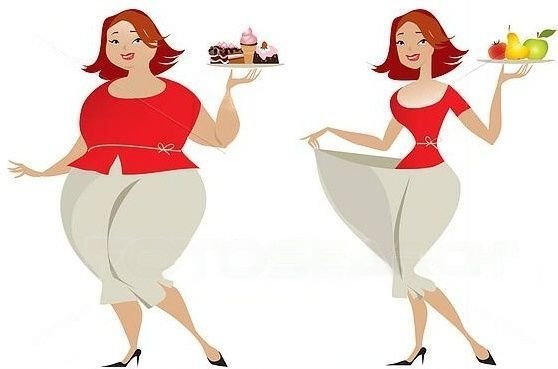It's far too simple to put on weight after you're in your 50s due to a number of circumstances. Your metabolism has reached its lowest level ever, and menopause has set in due to hormonal changes, if you're like the majority of women. Hot flashes, nocturnal sweats, insomnia, and yes, weight gain, could all be present.Sadly, belly fat makes up the majority of women's weight gain following menopause.
In order to make adjustments that you would not have had the opportunity to make when you were younger. you should atleast look at yourself in your 50s.
All women experience times when they are more motivated than other times to lose weight. As your drive wanes and diminishes, don't give up. Tomorrow is a new day and another chance to make healthy choices. Even if you don't feel motivated to eat well and exercise today, you still have that possibility.
In your fifties, you might be stressed out due to professional pressures, elderly parents, and financial worries. This stress may also have an impact on your eating and exercise habits. Women need to take a close look at their stressors right now. Even while you can't totally eliminate stress from your life, you can learn how to handle it. Using guided imagery, which entails just closing your eyes and imagining something enjoyable like taking a walk on the beach, is one relaxation technique to try.
Some of the prescription drugs you take regularly may cause you to gain weight. Numerous drugs for high blood pressure, diabetes, and depression either slow down metabolism or make people feel more hungry. Ask your doctor about other possible therapies if you believe that your medications are causing you to gain weight.
Hot flashes, nocturnal sweats, sleeplessness, and other symptoms might be brought on by the decrease in oestrogen that occurs during menopause. Your doctor may recommend hormone therapy to help you sleep better, feel less anxious, and eat better. Additionally, Estrogen treatment can lessen the chance of menopausal belly fat growth.
The North American Menopause Society estimates that one out of every eight women has a thyroid condition. Additionally, weight gain is one of the indications of hypothyroidism, an underactive thyroid that has symptoms similar to menopause. It can be worthwhile to request a blood test from your doctor to see whether you have a thyroid condition if you have lately gained weight and have been feeling particularly tired. He or she may advise you to use hormone-balancing drugs to assist you control your symptoms.
How to cure Hormonal imbalance by dropping pound-after-pound in under a week.
According to the Academy of Nutrition and Dietetics, having a vegetarian dinner at least thrice a week can also aid in weight loss and lower your intake of saturated fat, which can shield you against long-term diseases like heart disease. When you opt to skip meat, make sure you receive enough protein by focusing your meal on veggies and including beans or lentils.
Daily food tracking can help you become more conscious of how much you're consuming, which can help you stop mindless snacking. On your phone, you may easily record every mouthful using a variety of free apps. Just remember to record your intake as you go, rather than entering it by recall at the end of the day.
If you don't make an attempt to remain physically active, muscle loss will continue after your 40s. The International Osteoporosis Foundation claims that strength training is the key to preventing muscle loss while aerobic exercise like walking, riding, and swimming can help you stay in shape. Don't worry about attempting to acquire muscle like you did when you were younger since "your goal is to maintain your muscular mass."
When women go to the doctor, they frequently object to being weighed, but it's important to do it nonetheless. To discuss with your doctor what might be causing the additional weight and how to lose it, it's critical to be aware of any weight gain. Your doctor might have some novel ideas that you haven't considered.
Every calorie counts when you're in your 50s because your metabolism has significantly slowed down. According to the Academy of Nutrition and Dietetics, a decent general rule of thumb is to consume 200 less calories per day than you would usually. This will prevent your sluggish metabolism from winning.
